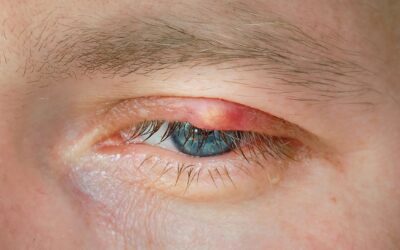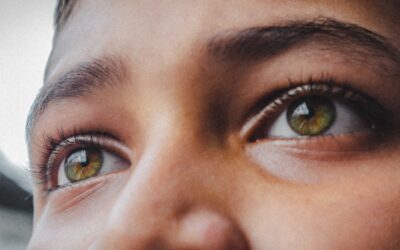SIMPLE HOME REMEDIES FOR DRY EYES
What can be done to treat your dry eyes depends on what is causing the problem. In many cases, such as MGD, its underlying causes should be dealt with by a specialist eye doctor. Even if this is the case, symptoms may be managed with home remedies.
Reducing the environmental causes is one of the best natural remedies for dry eyes. It can result in a significant improvement to your visual comfort. Try these 15 simple home remedies for dry eyes.
DRY EYE NATURAL REMEDIES
1. Avoid blowing air
To avoid tear film evaporation, limit your exposure to blowing air. Blowing air can be caused by heaters, air conditioners or fans. When you are out doors on a windy day try to protect your eyes with wraparound sunglasses. Although wind is not a primary cause of dry eyes, staying away from wind can prevent discomfort.
2. Use a humidifier
Heating systems and air conditioning can cause air to dry out, resulting in dry eye symptoms. To slow dehydration down try using a humidifier to add moisture into the air. If you don’t have one try placing a pot of water onto your radiator.
3. Re-position your computer screen
Positioning your computer screen below eye level can help to reduce dry eye symptoms. When your screen is too high your eyes will open wide to view the screen. Positioning it lower means you won’t have to open your eyes as wide. This will reduce tear evaporation.
4. Take eye breaks
Take eye breaks during long tasks. If you are reading or using a computer for long periods, remember look away from the screen periodically. Close your eyes for a few minutes, or blink 10 times slowly and repeatedly for a few seconds. This will help spread your tears evenly over your eyes.
5. Improve your blinking
Improve your blinking. It’s easy to forget to blink when you are concentrating for a long period. If you are using a computer consider putting a piece of Blue-Tac on the Enter key of your keyboard. Every time you hit it, you have a reminder to blink. Also try downloading the Korb Blink app on your smartphone. This app is designed to train you to improve your blinking by reminding you to practice at regular intervals.
6. Quit Smoking
Avoid smoke as smoke can greatly worsen dry eye symptoms. If you smoke, your GP can help you come up with a quit smoking strategy that will work for you. If you don’t smoke, try to stay away from smokers during your work breaks. If you use eye drops, try putting drops in before you will be around smoke to reduce dry eye symptoms.
7. Be aware of your environment
Be aware of your environment. The air at high altitudes, in aeroplanes or in desert areas, can be extremely dry. If you have to spend time in such an environment frequently close your eyes for a few minutes at a time. This will help to minimise tear evaporation.
8. Wear wraparound sunglasses
When going outdoors, consider wearing wraparound sunglasses or other protective eye wear. Safety shields can be added to the sides and tops of your glasses to block wind and dry air and increase humidity.
9. Use eye drops or ointments regularly
If you have chronic dry eyes, use eye drops regularly even when you don’t feel a need. There are many over the counter options and they bring temporary relief by working like real tears. This will help to keep your eyes well lubricated. Beware, some eye drops contain preservatives to make the drops last longer. If you are using eye drops with preservatives more that four times a day, the drops may make your symptoms worse. If your eyes react badly to the drops with preservatives, try using preservative free drops.
Ointments are designed to provide longer term relief than drops and are thicker than drops. They can however, impair your vision while you are using them.
10. Wash your eyelids
When you wash your face it is recommended that you wash your eyelids and the surrounding areas at the same time. This can help reduce inflammation. Although some recommend using baby shampoo, it should be avoided as baby shampoo mixes with the oil layer of the tear film. Instead you may wish to purchase medicated wipes to keep your eyelashes free of debris. When cleansing the area your eyelids should be closed. After cleansing, rinse with lukewarm water.
11. Potassium for dry eyes
Eating foods high in potassium may help dry eyes. The reason is potassium is one of the three components of the tear film. Tear film is a thin tear layer that protects our eyes from damage. Potassium plays a significant role in maintaining healthy tear film. You can get potassium from foods such as yogurt, potatoes, sweet potatoes and bananas.
12. Omega-3 fatty acids
Omega-3 fatty acids found in fish oil can help the oil making glands in your eyelids work better. This oily layer is produced by the meibomian glands that are situated in the eye lids. The best way to get fish oil is by eating fatty fish or by taking supplements. Sardines, salmon, trout or mackerel are all good sources of omega-3. Although tuna is a good source of omega-3 you should avoid eating too much due to its high level of mercury. If you are a vegetarian you can get your omega-3 fatty acids from spinach, broccoli, cauliflower, flax seed, walnuts and kale.
13. Warm Compress
Your tears consist of three parts. Oil, water and mucus. The oily layer keeps the watery component from dehydrating. Often the glands in the eyelids that produce the oily layer become clogged, resulting in a reduction in oil. This commonly leads to dry eyes. To combat this try using a microwave heat pack to heat your eyelids. Alternatively you can purchase a Heated Eye Pad. Follow the instructions to warm up the heat pack and apply it to your eyelids. After applying the heat, remove the heat pack and apply immediate gentle pressure across your eyelids. The heat will melt any clogged oil in your glands and the pressure will expel it.
14. Stay hydrated
Water is needed for your various organs to function. When you don’t have sufficient water your body may stop producing tears. This leads to dry eyes. To prevent this uncomfortable symptom, simply stay hydrated by drinking water throughout the day. Also make sure to drink adequate water after exercise.
15. Vitamins and supplements
Vitamin D
Several studies have linked vitamin D deficiencies and dry eyes syndrome. A study in Korea revealed that people with dry eye syndrome had significantly lower levels of vitamin D than those without the condition. The link between dry eyes and vitamin D is simply that vitamin D deficiency may cause dry eyes. It may also help to reduce inflammation of the eye.
It is important to note that there is limited research with regard to vitamins and dry eye.
WHEN TO SEE YOUR DOCTOR
In this article we have explored several natural remedies for dry eyes. These remedies are only designed to deal with the symptoms of dry eyes increasing your general comfort. If you are experiencing little relief, or have intense symptoms you should consult a dry eye professional.
You should see a doctor if you experience these symptoms:
- Pain
- Eye injury
- Redness and swelling
- Continued dryness after trying these home remedies




